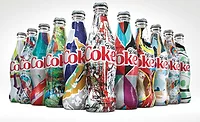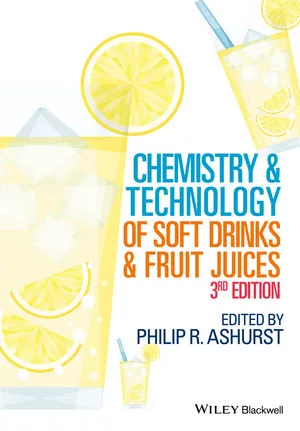Potential lies ahead for relaxation drinks
Millennials drive flavor expansion
Consumers are increasingly looking for functionality in their beverages. Beverage manufacturers are developing products that will appeal to consumers’ needs and wants including health, strength, energy and relaxation. Consumers are faced with daily stresses and more are turning to products that promote mental and physical relaxation as well as stress relief.
Santa Monica, Calif.-based IBIS World’s September 2014 “Relaxation Drink Production in the U.S.” report estimates that more than 70 million Americans have trouble sleeping. “Furthermore, the market extends beyond those who can’t sleep to those who have trouble focusing,” the report states.
“We see this as an underserved market,” says Bill Driessen, director at Taiyo International Inc., Minneapolis. “Not everyone wants to be stimulated via caffeinated energy drinks … there are consumers that are looking for beverages that offer something contrary to the energy drink. That something is a beverage that can offer calm relaxation, clarity and mental focus without drowsiness.”
Regulation prospects
Beverage-makers and ingredient manufacturers could face several challenges when developing new relaxation drinks in relation to regulations.
According to the report, relaxation drinks are regulated by the U.S. Food and Drug Administration (FDA) and are treated as dietary supplements. The FDA expresses concerns about the dosages and ingredients used in these beverages that could potentially result in stricter regulation, according to the report.
“Industry regulations, established under Food and Drug Administration (FDA) rules, have remained stable since the industry’s inception. Nevertheless, the FDA has shown interest in reclassifying some products as dietary supplements,” the report states. “Some of the ingredients used in relaxation beverages have not been approved by the FDA to be used as food ingredients, such as melatonin or kava. As a result, the FDA has gone after some producers to change their products or reclassify and label them as dietary supplements.”
Along these lines, local governments have begun to show interest in dietary supplement ingredients as well. New York State’s Attorney General, Eric Schneiderman, has made headlines with his investigations into the ingredients in dietary supplements.
“That was really something that hit the dietary supplement industry hard. That is certainly something to keep on the radar screen. See how the winds blow in the dietary supplement industry, because it will come over to functional beverages and foods,” says Russ Hazen, premix innovation manager at Fortitech Inc., Schenactady, N.Y.
According to Hazen, increased scrutiny and regulation of supplements in beverage formats really began with energy drinks. He says just a few years ago, energy drink companies were facing similar FDA regulation challenges for ingredients like caffeine and taurine.
“For the moment, these changes have yet to significantly impact relaxation drink production, but they remain a concern for operators and the viability of the industry as a whole,” the IBISWorld report states.
However, the report does state that regulation is something that the segment should be keeping an eye out for in the near future. “Concerns about the side effects of common ingredients in relaxation drinks, including melatonin, kava, alerian root, GABA, 5-HTP Tryptophan and L-theanine could potentially result in stricter regulations for relaxation beverages in the five years to 2019,” it states.
Body calming
Despite the possibility of heavier regulation for some relaxation and stress relief ingredients, melatonin-based relaxation drinks currently dominate the category comprising approximately 62.8 percent of the market. Kava-based relaxation drinks and L-theanine-based relaxation drinks round out the top three with 15.4 percent and 12 percent of the market respectively.
“Theanine has been shown to reduce both mental and physical stress while improving cognition and mood,” the IBISWorld report states.
Taiyo International, for instance, has seen much success with its Suntheanine brand 100-percent pure L-theanine. “[Suntheanine] offers the complete solution … it reduces the side effects of caffeine and provides true relaxation without drowsiness,” says T.P Rao, assistant general manager for Taiyo International.
According to Taiyo’s Driessen, consumers’ association of relaxation ingredients with drowsiness is a challenge that relaxation drink- and ingredient-makers will have to overcome. “Some of the ingredients that find their way into products that claim to promote a relaxed, calming effect also have the potential to create drowsiness,” he explains. “Early on, Taiyo verified through extensive research that Suntheanine does not cause drowsiness.”
The Chill Group Inc., a partner of Los Angeles-based L.A. Libations, accounts for just more than 30 percent market share. The company’s brand, Just Chill, is an L-theanine-based drink marketed to reduce stress and enhance focus.
“Just Chill is an all-natural ‘chill blend’ whose main properties include L-theanine,” the IBISWorld report states. “Unlike other industry products, Just Chill does not include melatonin and kava, which can cause drowsiness and are more commonly used in sleep-aid beverages.”
Just recently, AIDP Inc.’s Magtein, magnesium L-theonate, received FDA approval and GRAS status, according to Kathy Lund, vice president of business development and marketing at AIDP Inc., City of Industry, Calif.
According to Lund, the ingredient promotes focus and concentration, thereby reducing stress. “Magtein offers brain energy and reduces the chaos in the brain by rebuilding the brain neuron density naturally,” Lund explains. “We believe this is a more natural, healthful approach to stress relief.”
Looking at the label
Health-conscious consumers have become significantly more label-conscious, and millennials, in particular, are concerned about what they are putting into their bodies.
“The general consumer is label conscious now. One of those things people are realizing now is what’s going on with supplements and the benefits available. But many don’t want to take as many supplements in traditional delivery forms, like tablets. So they’re moving toward functional food and beverages to help,” Fortitech’s Hazen says.
IBISWorld notes in its report that the relaxation drink category is rapidly growing and beverage-makers continue to roll out new forms of these beverages with new ingredients that play to a range of consumer desires, one of which is, natural ingredient options.
However, according to Fortitech’s Hazen, there can be some beverage formulation challenges when working with some “natural” ingredients.
Hazen notes that these ingredients can have limitations when it comes to taste. “Some botanicals and amonios don’t really have a great taste,” he explains. “So if you’re going to try to put these in a product and make it successful, you have to find a way to make the final product taste acceptable. Careful selection of complimentary flavor profiles or flavor maskers can often help.”
Hazen also says that solubility is another challenge beverage-makers can face when using natural ingredients. He says that some of these ingredients can cause cloudiness or settling as well.
Continued ingredient innovations will play a key role for success in the future. However, regardless of regulations, IBISWorld predicts that the $152.9 relaxation drink industry, excluding ready-to-drink teas, dairy-based drinks and carbonated beverages will grow 11.5 percent annually throughout the next five years.
Looking for a reprint of this article?
From high-res PDFs to custom plaques, order your copy today!





